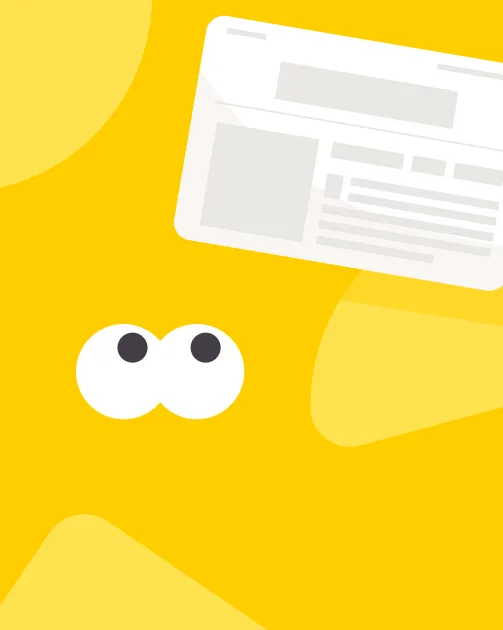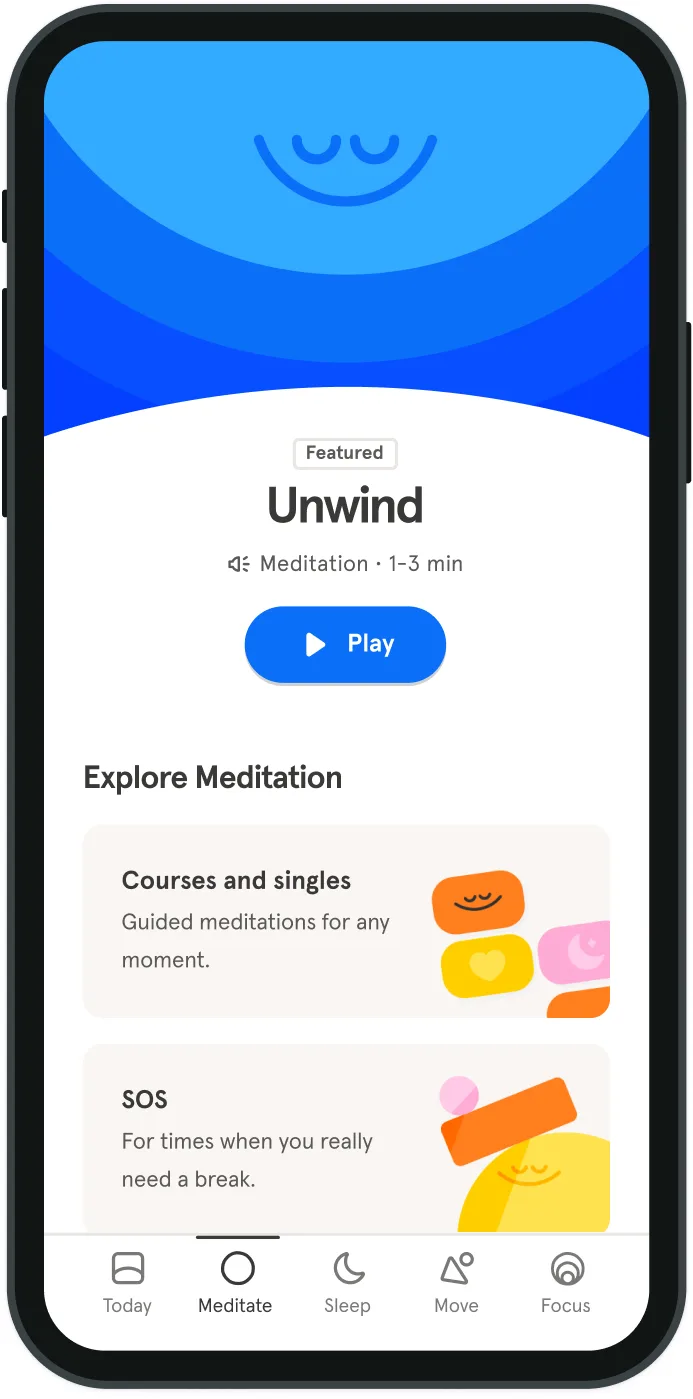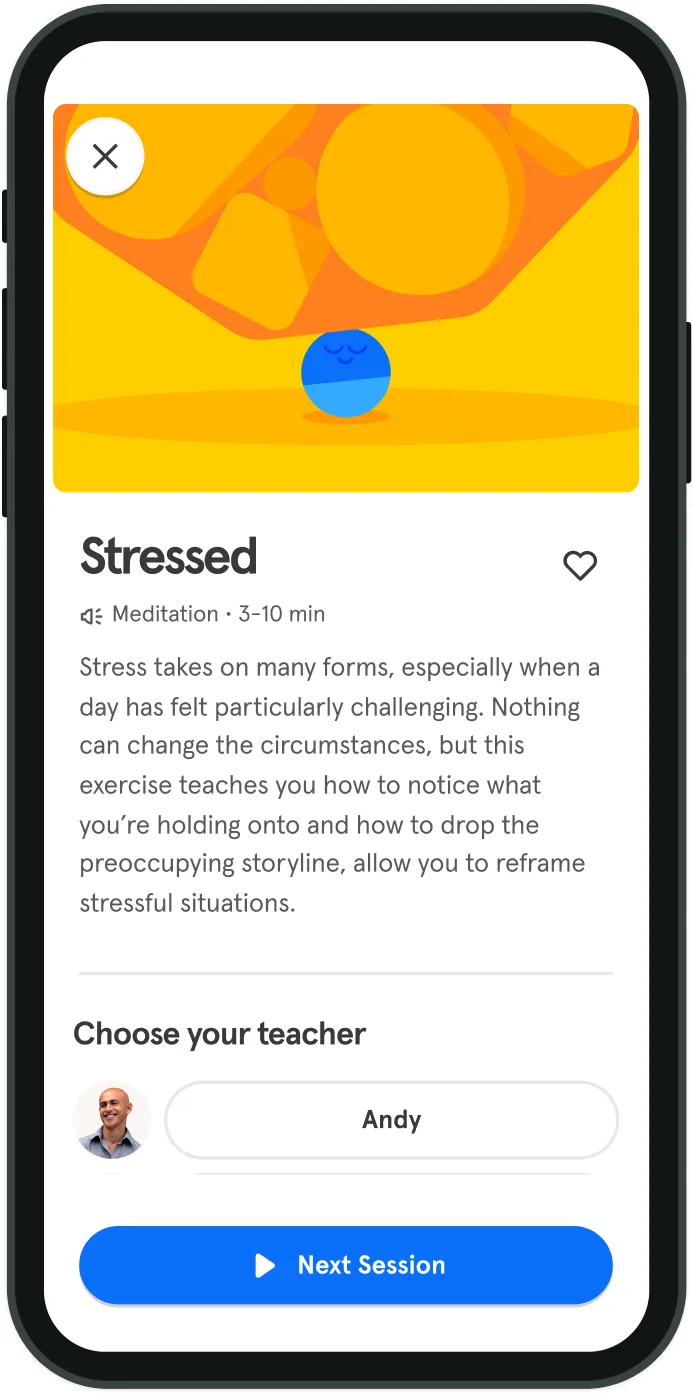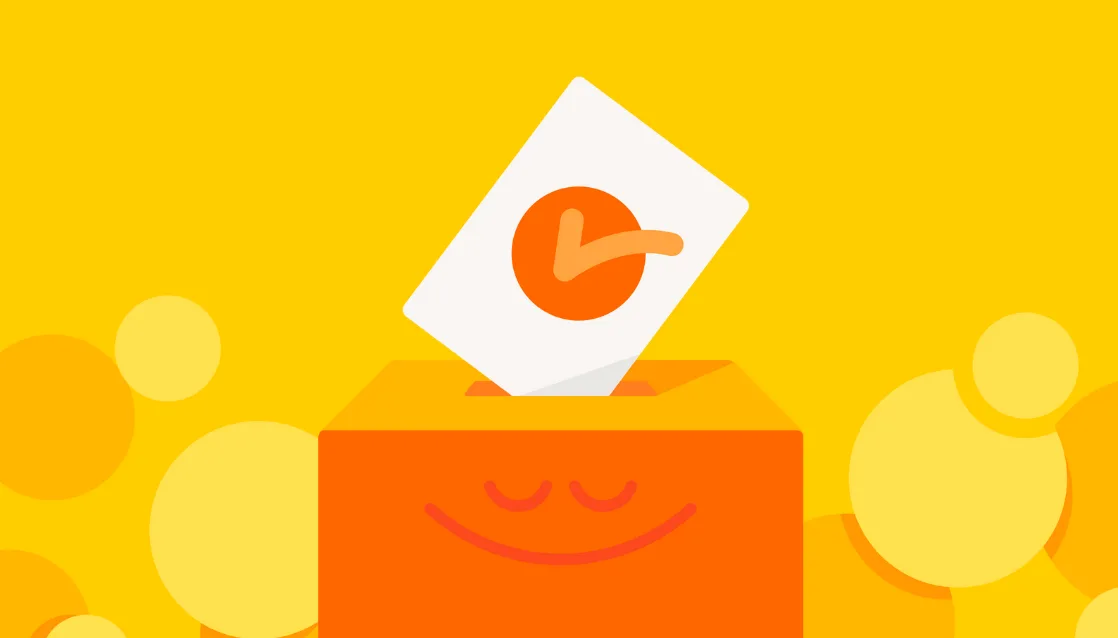How to deal with news anxiety
News used to enter our homes — and our minds — on an invite-only basis. We chose to buy a newspaper, or to turn on the evening report, before returning our focus to our own lives. But since the rise of 24-hour news cycles, the internet, and cell phones, it’s becoming increasingly difficult to switch off the constant stream of headlines. It is, of course, important to be informed. But not at the expense of our mental health.
The increased access to news and information has broadened our horizons, and therefore opened us up to a wider range of stressors. The American Psychological Association’s annual Stress in America survey has increasingly found national and global issues, like politics, public health, and climate change, are being mentioned alongside personal issues, like money and work, as our most significant causes of stress.
Our extra exposure to what is going on in the world around us can be a positive thing – it can help us gain more knowledge, more empathy, and more power to make a difference. But in order to be best equipped to use this information to better our own lives and the lives of others, we must ensure our minds are best prepared to manage the stress it has the potential to cause.


Mini-Meditation: Letting Go of Stress
1 min
Key takeaways:
We can prepare our minds to manage the stress of the 24-hour news cycle
Mindfulness can help us maintain a calm and clear mind within a hectic world
Try 11 meditations for news anxiety
Too much information
As far back as the 1990s — back when the internet was in its relative infancy — psychologist David Lewis made headlines with his belief that being subjected to increasing amounts of data was affecting our physical and mental health. He said: “We’re often seeing a failure of concentration. We're seeing a loss of motivation, loss of morale. We're seeing greater irritability.” And he predicted the information overload was due to get worse in the coming years as the internet grew in size and influence.
Of course, the internet’s role in our lives ended up being even larger than most people imagined. Now the constant influx of news received via email, social media, websites, and round-the-clock news networks can feel like it dominates our lives. And according to some experts, it’s not healthy for our brains. Neuroscientists have warned that our continuous exposure to technology and the need to constantly multitask and jump between different information on different devices is in fact making us less efficient. Washington DC therapist Steven Stosny even coined the term “headline stress disorder,” which is not a diagnosable condition, but an expression he used to describe his personal experience with clients who were left struggling under the 24-hour news cycle effects, while other experts have referred to it as “news anxiety.”
Whatever we call it, the remedy is the same, and it is based in mindfulness. While we cannot control the amount of information that’s shared around us, we can control our relationship with it. So let’s look at how to maintain a calm and clear mind within a hectic world.
How do we deal with news anxiety?
Stress and anxiety are two different states with some crossover of symptoms. Stress is a response to an external trigger or perceived threat, while day-to-day anxiety is a culmination of internal worry and a physiological stress response, and is often absent of a threat. It is possible that concerns surrounding world events could trigger either of these states.
Like other forms of stress and general anxiety, news anxiety has the potential to impact our physical and mental health. It can trigger our autonomic nervous system, leading to a spike in the “stress hormones” epinephrine and cortisol. We’re built to deal with stress in small doses, but too much can put us at risk of serious health issues.
Stress and anxiety also both impact our amygdala — two almond-sized nuclei that work like our emotional thermostat controlling our senses, memories, decisions, and moods. And our reaction to stressors can escalate over time, with the more stress and anxiety we experience, the more reactive the amygdala’s response becomes. So the more scary headlines we read, the more our stress can build, and the more agitated and reactionary we can be.
There are numerous ways of managing news anxiety, grounded in mindfulness, including some that were issued by the American Psychological Association due to concerns about how much election stress was affecting Americans in the 2020 Presidential election. Here are some headlines:
Avoid dwelling on things we can’t change. Many people imagine worst-case scenarios during times of uncertainty, yet are unable to do anything to impact the outcome. But by breaking this habit, we can take control of our minds.
Focus on what is within our control. Limit media consumption if it is causing us stress. Give ourselves a break from the news. Or designate a specific time slot each day to catch up on world events, rather than subjecting ourselves to round-the-clock headlines.
Channel our concerns to make a difference on issues we care about. By engaging in community or charity work, or by simply voting, we can turn our concerns into positive action.
Stay active and socially connected. Information overload can be reduced by releasing energy through exercise, and stress can be alleviated by talking to a friend.
Tune out if we want to. As with many things in life, it is often our relationship with something that determines our mood, rather than the thing itself. The news is the news, with or without us, reflecting events in the outside world. How much we engage with the news is up to us. So if engaging with the headlines is proving detrimental to our mental health, we can always choose to tune out, or at least limit how much news we are absorbing.
Some of these tips might sound easier said than done. But by practicing mindfulness and meditation, we can prepare the mind to make the best decisions when challenged by the stressors we’ll inevitably face.
Meditation can help with news anxiety
Meditation can help us to manage stress by changing our relationship with our thoughts. We learn to be curious about what is causing us stress, and then to let go of all the thinking that further fuels the stress. It’s these repetitive thoughts around an event or situation that cause all the “noise” in our head, and that’s what meditation seeks to quieten. In the case of news anxiety, we can find the balance between staying informed and not being overwhelmed.
Meditation equips us with a sense of awareness that allows room for difficult thoughts and emotions to arise without letting them destabilize us. Instead of getting caught up in the news cycle, we can instead observe what’s happening and remain calm and clear, putting us in the best position to use the information in the most helpful way. We do this by using the breath to keep us grounded — we learn to use the breath as a release valve for stress in our day-to-day lives.
In addition to focusing on our breath, several other techniques taught in the Headspace app can help: the body scan helps us to identify stress and how it manifests itself in our bodies, while the visualization technique helps create that space in the mind and body for thoughts to move and change. With a sunlight visualization, for example, we imagine rays of light filling our body from crown to toe, melting away negative thoughts, tension, and any upsetting images from the news.
Just as continuous exposure to stress can change the neural pathways of our brain through a process called neuroplasticity — making stress our default setting — the opposite can be achieved through a regular meditation practice. The more we meditate, the more we trigger our “relaxation response” when we need it. Studies using MRI scans have shown that a regular meditation practice can even shrink the amygdala, helping it react more rationally to stress and fear. Additionally, a 2018 study found that people who used Headspace for only 10 days reported an 11% decrease in stress. After 30 days of using Headspace, they reported a 32% decrease.
Headspace co-founder and former Buddhist monk Andy Puddicombe recommends meditating for just 10 minutes a day to build a healthy habit and transform our minds. For those with news anxiety, the morning might be the best time to do it, perhaps instead of immediately picking up our phones and scrolling through the news.
Try 11 meditations for news anxiety
Looking for more meditations to deal with news anxiety? The Headspace app has a Reframe Stress and Relax collection, where subscribers can access meditation courses and singles to help us manage stress and find stillness, including:
Managing Anxiety course. Experience anxious thoughts from a new perspective.
Letting Go of Stress course. Learn to reframe negative emotions and let them go.
Putting Down Our Phones guidance. Devices don’t cause stress — how we relate to them does.
Restlessness course. Learn to work with a restless mind more skillfully.
Transforming Anger course. Connect with anger and use it to train your mind.
Navigating Change course. Train your mind to be more comfortable with change.
Feeling Overwhelmed meditation. Give yourself room to breathe.
Burned Out meditation. Step away from worried thoughts.
Panicking meditation. Anchor your mind and body in the present.
Losing Your Temper meditation. Let go of whatever is causing you to feel frustrated.
Flustered meditation. Bring an unsettled mind back to the subject at hand.
Of course, meditation won’t make bad news disappear, but it will prepare our minds to be in the best possible place to process it, react reasonably, and then act effectively.
Andy says: “Anxiety, fear, is just part of being human. Sometimes it’s even helpful. We kind of need this range of human emotions in our life. It’s just when they become so persistent that they start to overwhelm us, then it becomes a problem. So it’s more about how we can change our relationship with anxieties – not how we get rid of them.”


Less stress. More Headspace.
- Unlock hundreds of stress-relieving meditations, including 3-minute do-anywhere sessions
- Release tension with guided workouts — from yoga and dance, to mindful walks
- Start your morning with uplifting daily videos, then unwind at bedtime with relaxing sounds and music

Stay in the loop
Be the first to get updates on our latest content, special offers, and new features.
By signing up, you’re agreeing to receive marketing emails from Headspace. You can unsubscribe at any time. For more details, check out our Privacy Policy.
- © 2025 Headspace Inc.
- Terms & conditions
- Privacy policy
- Consumer Health Data
- Your privacy choices
- CA Privacy Notice



